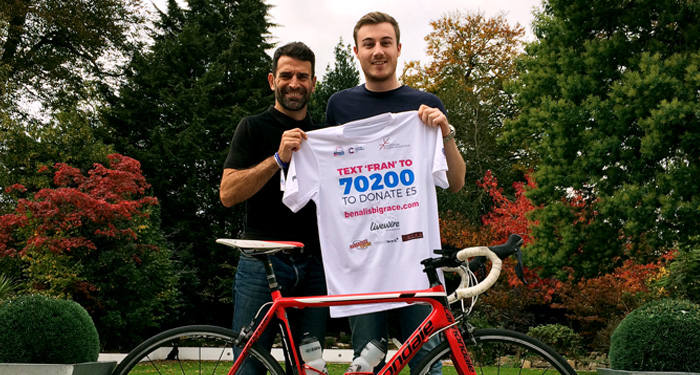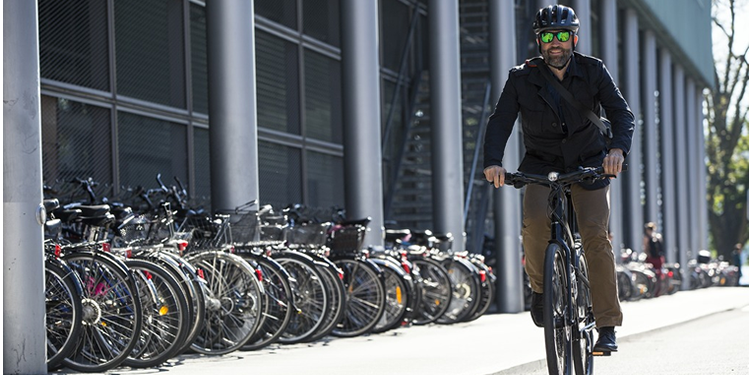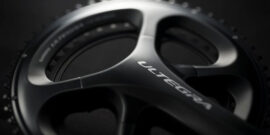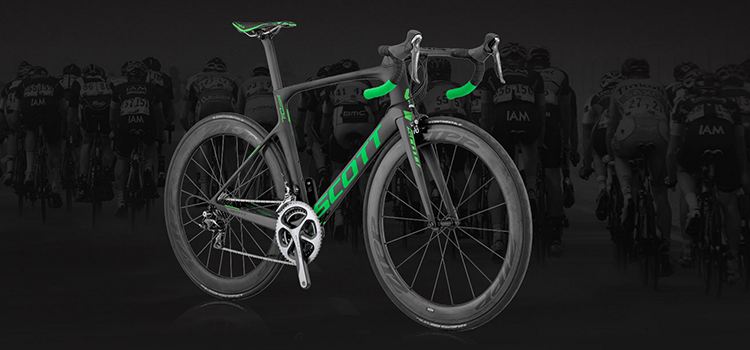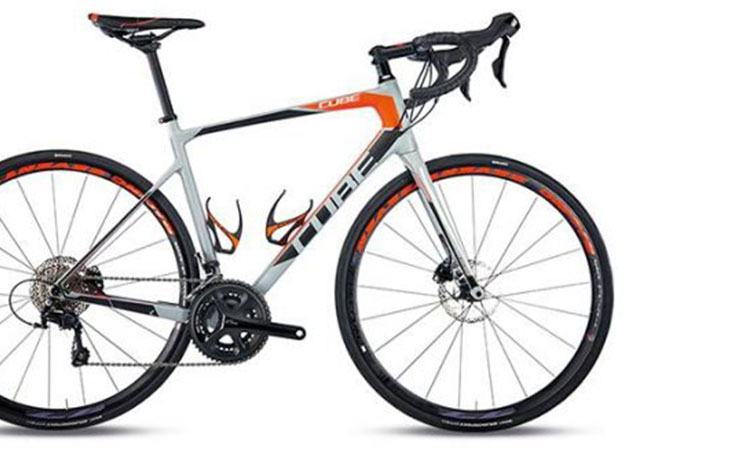We had the chance to sit down with Francis Benali, a couple of weeks after he completed Benali’s Big Race, where he toured the Premier League and Championship Football grounds around the country. Running a full marathon a day, and then cycling twice that distance on top, all in the name of Cancer Research.
How and when did you come up with the idea?
I suppose the idea was on the back of the Benali’s Big Run two years ago when I ran to all the Premier League football stadiums. That was an incredible experience and raised a huge amount of money, but it was a long way short of the £1 million target. We fell short of that in the first challenge and having finished it and seeing how grateful the charity was to receive that kind of money, and the difference that can make to people’s lives was incredible. Since the Big Run finished 2 years ago, my father in law has been diagnosed with prostate cancer and has had treatment for that. We’ve lost a couple of close friends and a very good friend of my wife and I is currently undergoing chemotherapy.
I wanted to do another challenge to raise more money for the charity, given what’s happened since the last one. It felt like some unfinished business trying to get to that £1 million. We set the bar pretty high with the Big Run, and we thought how can we capture people’s imaginations again? How can we raise the bar on this next one? So we thought let’s add another discipline and that’s where the bike came into it. I wouldn’t call myself a seasoned cyclist by any means. We wanted to make it more mileage, more football clubs but in a shorter space of time. A marathon each morning, and a minimum of 75 miles each day on a bike. We thought that hopefully would capture people’s imagination again.
That sounds huge! When did you start preparation for the Big Race?
I probably started the turn of the year going to the gym. I thought I’d try and start getting some strength and some core work before I started the doing the aerobics like the running and the cycling. Running comes more natural to me than jumping on a bike. So the running side was easier, and I was doing the odd run and bike ride. No real strict programme for the first few months, but then as we got closer and closer to the challenge, I had to try and replicate the Big Race as best I could. Finding the time each day to try to prepare and train, especially trying to get a few hours to do a decent sized run and even more so to get some decent miles in your legs on the bike so combining the two was tough.
As you know, there is an element of learning on the bike during training like getting used to traffic and something as daft as unclipping! I took a few tumbles at junctions and traffic lights, where I’d come to a standstill and the brain didn’t engage and I didn’t unclip and literally fell into the pavement. That was pretty embarrassing, when in traffic on a few occasions. I took a tumble off the bike one day when I tried to hop up a drop kerb. It was quite a chunky drop kerb and the thin road tyres just bounced off it, the bike went one way and I went the other!
What was the hardest part of doing the challenge, the training before hand or the day to day of the challenge?
I think the cycling element, where I’m more accustomed to running, the bike side of it was harder for me. It was at the end of the day as well, so I was getting really fatigued and tired. We were having 5-5:30am wake-up calls each morning, giving me time to have breakfast and get some treatment, I had a few niggles and injuries to keep on top of. We would leave the accommodation, get packed, get to the start line and start running. It did feel to me; every single minute of the day was a race. The challenge being called the Big Race was quite aptly named in a way because the time of year we did it, we were chasing the daylight every day. I also didn’t feel that comfortable with cycling in the dark at night. I always trained during daylight hours. That element of being out on the road in the dark, with potholes and traffic. I have never really done that kind of cycling in that environment before. I was getting tired, I was making little mistakes, I wasn’t concentrating. I was going so long each day, there was that day to day build-up of fatigue, that mental strain.
What about your fuel, in terms of eating and drinking? Did you have a strict plan?
Not a strict plan, I lost over a stone on the first challenge, two years previously and obviously that was just running. I did have a loss of appetite during that, and I was worried how I would be in the midst of the Big Run. I was told to pack some pounds on before this challenge started which was nice in a way, given license to eat as much and as often as I could! I was sure as hell going to lose it on the challenge itself with the calories I was burning. Pleasantly I was pleased to find that my appetite was there right throughout the challenge.
I did get sick of being passed an energy gel or snacking on certain things. Having to constantly refuel and keeping on top of your fluids on the bike was a struggle. The support team were constantly reminding me to keep my fluids up. For me being an inexperienced cyclist there was an element of trying to get into a rhythm and trying to lose those miles in your head, and before you know it half an hour has gone by and you’ve forgotten to eat or drink. Especially if the road was busy, trying to sort out control the bike, and getting to your pouch and getting some food out, was tricky for me. Which was why I neglected the food a little bit unless it was physically passed to me so that I could straight away eat. As you know, it’s crucial to keep the body fuelled.
It seems it was more than just the distance that was a hurdle. To someone fairly new to cycling you had to deal with the challenges that come with the sport, in such a short space of time.
I have done a few bikes rides, like the Garmin Ride Outs and a one or two things for the Saints’ Foundation. That gave me an interest in the cycling, and that’s where I thought let’s tie that into the challenge when we’re sitting down thinking of what to do. I really enjoyed it, unlike the running, there’s that constant, as anybody who rides knows, concentration. Even, when I was riding through London there was a lot of junctions and traffic lights and I was unclipping more than any other time in the challenge. I strained my muscles just above the ankle from clipping and unclipping so much. As well as a lot of the roads I was on there was that constant awareness of the traffic and again, of course, navigation. I was in parts of the country that I had no knowledge of. No idea where I was going. The rule of thumb was to go straight, and if you come to a junction or a roundabout and you need to go in a different direction, there would be a member of the support team or vehicle telling me which way to go, that was how we navigated.
Did you have a car with you all the time? Who was part of your support team?
There were four vehicles, the support car with the bike that I’d be following. A second support vehicle that was the van, that had a few supplies in. There was the charity car, that had a member or two from Cancer Research, they weren’t doing navigation but they were support on the road. Finally, the media team who dropped in and out getting footage and photographs. They even had a drone and were filming with that. There were only really two cars I was following from a navigation point of view. That were just almost leapfrogging one another, to keep me moving on the road. The team consisted of my wife, my children, the route manager, the sports therapist, a couple from the charity and the media guys. There were about 10-12 people at a time on the road with me.
Has Benali’s Big Ride put you off riding your bike?
I wouldn’t say so. I wouldn’t say I was going to go out in the morning and do another 70 plus miles, mind you. I would like to do more. I think there is an element of letting my body heal, and my mind to recover a little bit. I certainly would like to think I’d continue cycling.
Finally, if you could give one bit of advice to somebody who has been inspired by what you’ve done, what would you say to that person?
Go for it. Simple. It doesn’t have to be an ultra-endurance event. I was intrigued by to see how I would respond to that kind of multi-day endurance test. Which is why I had done the challenge two years ago. Someone’s Everest could be doing a 10k, half marathon or a marathon. It doesn’t have to be something extreme. If anyone believes something is impossible in life, whether it’s a physical challenge, a personal challenge, a career challenge, my advice would be to fix your goal, know what you want and commit to it. Just go for it! What might seem impossible or what people tell you is impossible, and I’ve experienced this through these last two challenges, with enough determination, grit and belief anything is literally possible in life.

